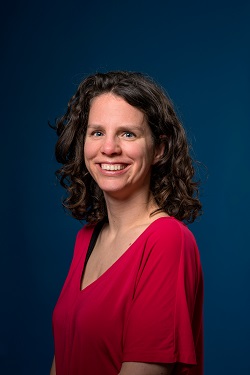Better elderly care requires strategic deployment of vocational nurses
There is no academic evidence to support the claim that an increase in elderly care workers contributes to higher-quality care. Furthermore, there are too few vocational nurses in nursing homes to objectively determine the impact on the quality of care. These were the results of a dissertation by Ramona Backhaus, who will obtain her PhD on Wednesday 12 April from Maastricht University (UM).
Quality of care
Quality of care in nursing homes is a popular topic, with continuous calls from the public and the political realm for more hands-on care. The assumption is that more or more highly-trained staff will increase the quality of care. Based on Backhaus' dissertation, there is no evidence to suggest that more staff will lead to higher-quality care. A large-scale study at 282 nursing home units revealed that there are too few vocational nurses at Dutch nursing homes to objectively determine their impact on the quality of care. It was, however, found that vocational nurses can serve as leaders on the work floor and thereby contribute to a positive team climate and enhance the learning capacity of the team.
Vocational nurses
Instead of focusing on the number of staff members at a particular nursing unit, the focus should lie on what those staff members can do. Purely requiring vocational nurses to perform specific actions does not do justice to their inherent competences. According to Backhaus, they should instead serve as role models and coaches for the team and help to coordinate care. By reflecting on their position, nursing homes can become a challenging and stimulating workplace for vocational nurses. The results of this study reveal that organisations with a clear vision of the deployment of vocational nurses are more capable of attracting and retaining them. Nursing homes will only become attractive internship organisations for vocational nurses in training if they have vocational role models who have the opportunity to apply their specific skills.
Academische Werkplaats Ouderenzorg
Ramona Backhaus conducted her research study as part of the Academische Werkplaats Ouderenzorg (joint academic centre for elderly care, AWO) at Maastricht University. This academic centre bridges the gap between research and practice and between care and knowledge organisations. In so-called living labs, university employees are seconded to healthcare organisations and healthcare employees (nurses, paramedics, doctors) are seconded from these organisations to UM and Zuyd University of Applied Sciences. This cross-disciplinary and multi-disciplinary approach with dual appointments has proven to be a successful formula for introducing innovative elderly care. Backhaus' study is part of the research line Nurses on the Move from the programme 'Tussen Weten en Doen II', funded by ZonMw.
Also read
-
Nienke Verstegen, researcher at De Forensische Zorgspecialisten, has conducted research on aggression within forensic care and its impact on patients and staff. On July 6, 2023, she will receive her PhD from Maastricht University with her dissertation 'Hurt people hurt people. Characteristics and...
-
Patients admitted to hospital due to a severe COVID-19 infection exhibit no evidence of brain damage caused by the disease. This is the conclusion of an extensive study led by Maastricht University.
-
Due to the Western lifestyle with a high fat diet combined with little exercise, more and more people in the Netherlands are overweight or even obese. This causes an increased risk of type II diabetes. What can be done about this besides a healthier lifestyle? The answer comes from an unexpected...


